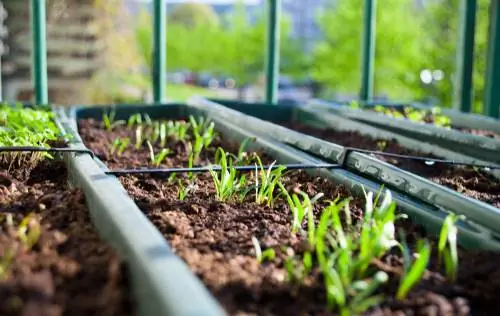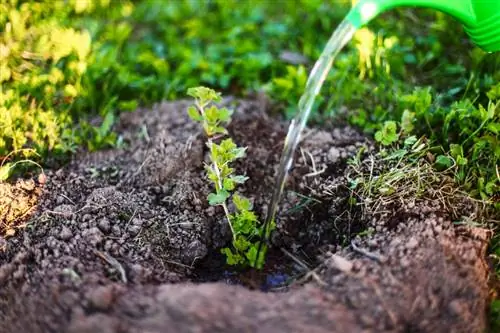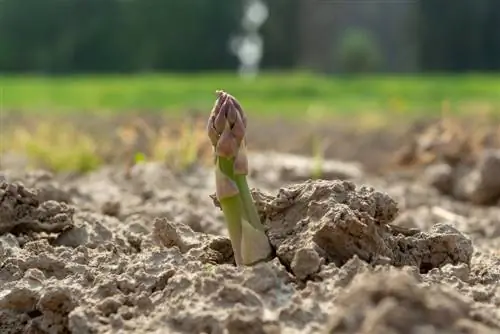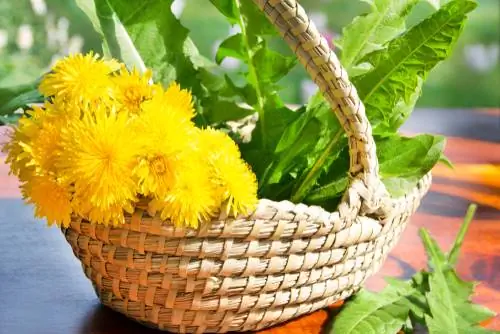- Author admin leonars@hobbygardeners.com.
- Public 2023-12-25 17:45.
- Last modified 2025-01-23 11:21.
Edible nature is not always right on your doorstep. And not everyone has plenty of time to collect regularly. However, some wild herbs accept a cultivated existence. In the garden or balcony box. This is how you can grow it successfully!
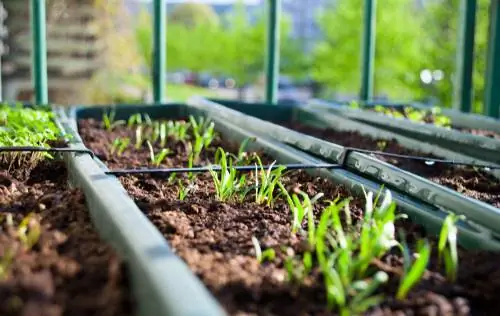
How can you successfully plant wild herbs?
In order to successfully plant wild herbs, you need a sunny location for sun lovers like daisies and red clover, and a shady spot for shade lovers like wild garlic and ground goose. Use suitable soil, sow seeds or plant seedlings and provide the herbs with sufficient water and, if necessary, fertilizer.
Soil conditions and lighting conditions
Edible wild herbs also need an optimal location and soil enriched with the necessary nutrients for he althy growth. Fulfilling your wishes is not that difficult, because wild herbs have developed an amazing ability to adapt.
Daisies, red clover, yarrow, ribwort plantain and meadow bedstraw are sun worshipers. Shade, on the other hand, is preferred by wild garlic, gourd, ground ground, garlic mustard and chickweed.
Commercial herb soil is ideal for wild herbs on the balcony. Species that have higher nutrient requirements are well served with vegetable soil.
Tip
Look around your garden. Where has a wild herb already settled voluntarily? If you like it, just let it grow there.
Sowing wild herbs
Most wild herbs are annuals and grow new ones every year. You can go looking for seeds in the wild. Research beforehand when the flowering time of the herb you want is. Trade seeds are always available for some wild herbs such as chickweed or Guter Heinrich. A so-called wild herb mix can often also be purchased.
Note:Only collect seeds from wild herbs that you can clearly identify. There are some poisonous wild herbs in nature that you definitely don't want to plant in your garden.
Planting seedlings
You can buy young seedlings in special nurseries or dig them up somewhere in nature. However, caution is advised when it comes to wild herbs that reproduce with rhizomes. For example, the spreading greedweed can conquer the entire garden in no time. A rhizome barrier makes sense here.
Note:Collecting or digging up wild herbs is not permitted everywhere in nature. This is particularly true in nature reserves. Inquire in good time so as not to risk a pen alty.
Care for wild herbs
Nobody has to worry about wild herbs in the garden unless you harvest them regularly. In a balcony box, however, an adequate water supply is important. Some species need some fertilizer now and then.

